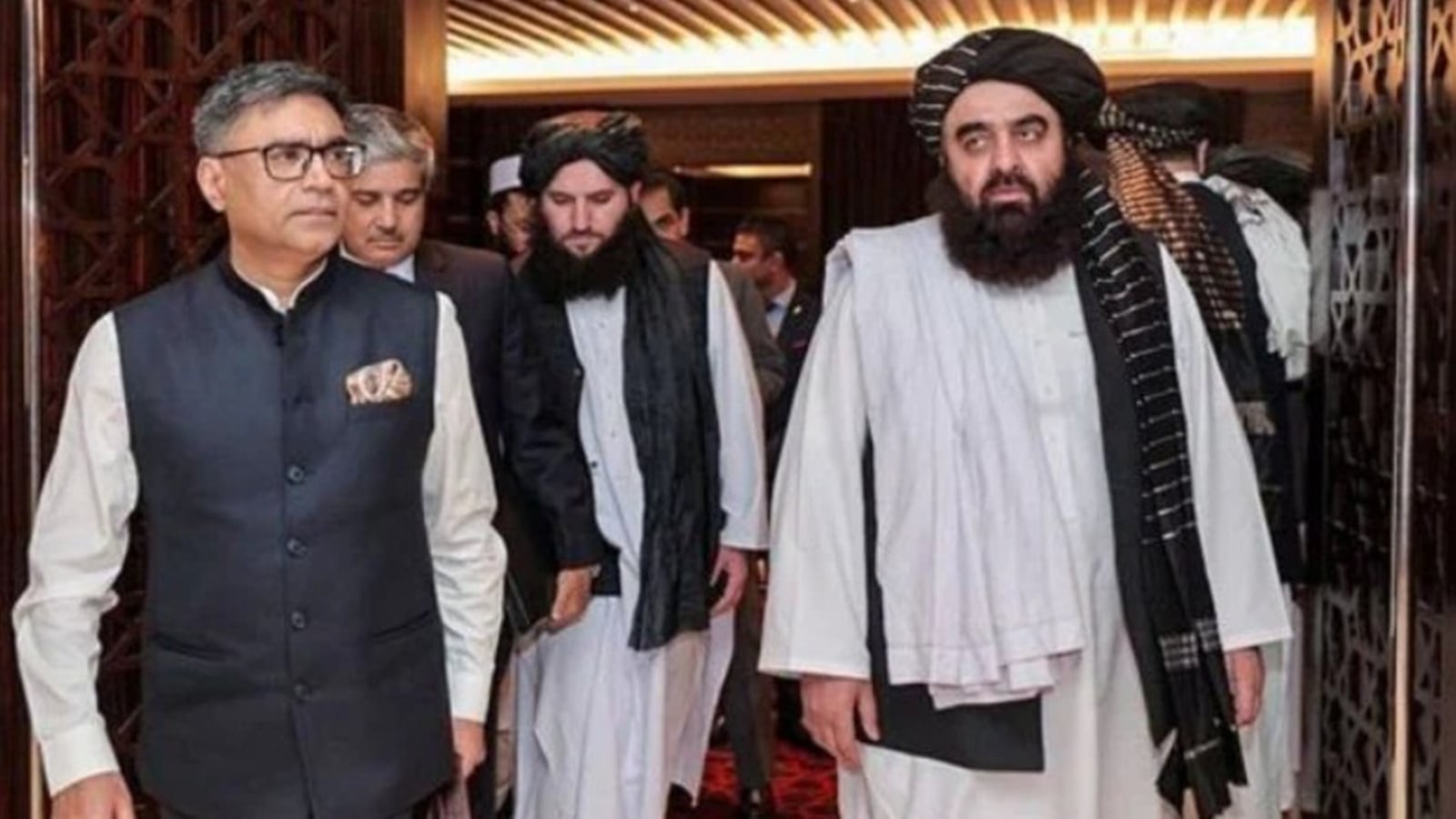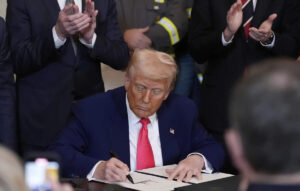Story continues below this ad
These improbable diplomatic overtures capture the new geopolitical moment: The Taliban, no longer insurgents in the hills but rulers of a state, are trying to assert their political independence by seeking legitimacy. However, for the United States and India, the moral and political barriers to engagement remain high. But so do the costs of isolation — and the strategic opportunities lost if others fill the vacuum.
Why engage?
Debates over negotiating with terrorist groups are often met with moral outrage — how can a nation sit across the table with individuals responsible for horrific violence? For the US, engaging with the Taliban is particularly fraught. After all, the group harboured Osama bin Laden and Al-Qaeda as they plotted the 9/11 attacks, which killed nearly 3,000 Americans. Over 18 years of war, the US lost around 2,500 soldiers, with another 20,000 wounded.
For India, too, the scars run fairly deep. The Taliban’s complicity in the 1999 hijacking of Indian Airlines Flight IC-814, which forced New Delhi to release three jailed terrorists, including Masood Azhar, who later founded the anti-India terror group Jaish-e-Mohammed, remains an open wound. The attack on the Indian Embassy in Kabul in July 2008 that killed 58 people, including Indian diplomats and security personnel, was conducted by the Haqqani Network, a close affiliate of the Taliban, further deepening mistrust. Talking to the Taliban, thus, risks sending the wrong message — that there is no price to pay for violence. Washington and New Delhi face a choice: Continue isolating the Taliban, ceding influence to rivals like Russia and China, or engage pragmatically.
Why should the US engage?
Engaging with the Taliban offers the United States critical and much-needed counterterrorism leverage. Since the US withdrawal from Afghanistan in 2021, ISIS-K (Islamic State Khorasan Province) has emerged as a serious threat, not only to the Taliban regime but also to Western interests. The group claimed responsibility for several high-profile attacks, including the August 2021 Kabul airport bombing that killed 13 US service members and over 170 Afghan civilians. The Taliban, despite ideological differences, shares an interest in curbing ISIS-K’s influence. Intelligence-sharing or indirect coordination on counterterrorism is not inconceivable in a structured dialogue framework.
Geopolitically, the cost of disengagement is already visible. China has signed significant investment and security agreements with the Taliban, including a $540 million oil extraction deal. Russia, meanwhile, hosted Taliban officials in Moscow and maintained diplomatic contacts, seeking to expand its regional influence. Even Iran, historically hostile to the Taliban, has deepened trade ties, especially in fuel and electricity.
From Washington’s perspective, outright recognition may remain a difficult leap. But limited engagement, conditional talks, and pragmatic diplomacy would serve its strategic interests. It means acknowledging: The Taliban are in power, and isolation has only strengthened their ties with America’s adversaries. While Washington’s engagement may be driven by counterterrorism and strategic balance, for New Delhi, the Taliban’s evolving equation with Islamabad presents a different kind of opening.
India’s opportunity: Leveraging the Taliban-Pakistan rift
For India, the Taliban’s resurgence initially seemed like a setback, given Pakistan’s historical ties to the group. But the relationship between Islamabad and the Taliban has frayed. The Taliban refuses to recognise the Durand Line as the official border, and Pakistan’s recent air strikes inside Afghanistan highlight growing tensions. This presents an opening for New Delhi. While the Taliban’s ideological leanings are concerning, their current pragmatism and hostility toward Pakistan create a rare convergence of interests.
The Taliban’s resistance to Pakistani interference aligns with India’s goal of limiting Islamabad’s influence in Kabul. India can quietly engage the Taliban to ensure Afghanistan does not become a safe haven for anti-India militants. This also serves to strengthen India’s economic and strategic footprint. India’s infrastructure projects, like the Chabahar Port, remain vital for Afghanistan’s economy. Engaging the Taliban could safeguard these investments and expand New Delhi’s regional connectivity ambitions. Additionally, as Beijing courts the Taliban for Belt and Road Initiative (BRI) projects, India’s engagement can prevent Afghanistan from becoming a full-fledged Chinese client state.
The Taliban’s early outreach to historical adversaries like the US and India reveals their desire for recognition. The US and India both stand to gain from a recalibrated approach. For Washington, conditional recognition, tied to counterterrorism cooperation and human rights progress, is a strategic necessity, not an endorsement. For New Delhi, pragmatic engagement with Kabul’s new rulers could help stabilise the region while countering Pakistan and China. While they cannot whitewash the Taliban’s past or present, both the US and India can begin a process of calibrated re-engagement focused on regional security.
The Taliban remains a deeply flawed, authoritarian regime. But in geopolitics, purity is rarely an option. Engaging does not mean endorsing; it means choosing strategic realism over ideological rigidity. For both Washington and New Delhi, the question is not whether the Taliban “deserve” recognition, but whether disengagement merely hands the keys to Kabul to rival powers.
The writer, a senior IPS officer, holds a PhD in Security Studies from Princeton University. Views expressed are personal









